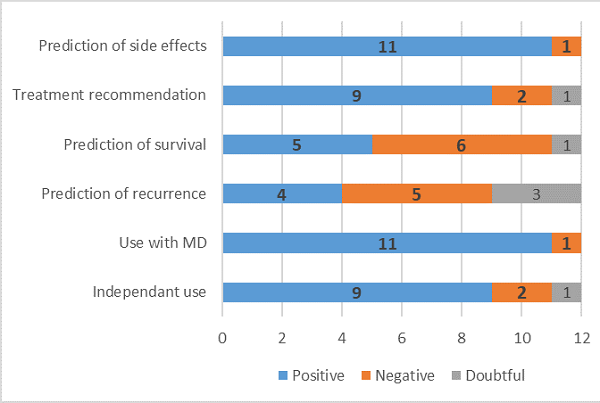Patients' attitudes on the use of AI-based decision aid: A qualitative study
Hajar Hasannejadasl,
The Netherlands
OC-0594
Abstract
Patients' attitudes on the use of AI-based decision aid: A qualitative study
Authors: Hajar Hasannejadasl1, Emma Essink1, Cheryl Roumen2, Claudia Offermann3, Andre Dekker4, Rianne Fijten1
1 Maastricht University Medical Centre+, Department of Radiation Oncology (Maastro), Maastricht, The Netherlands; 2Maastricht University, Department of Health Services Research, Maastricht, The Netherlands; 3Maastro Clinic, Research Affairs department, Maastricht, The Netherlands; 4Maastricht University Medical Centre+,, Department of Radiation Oncology (Maastro), Maastricht, The Netherlands
Show Affiliations
Hide Affiliations
Purpose or Objective
Artificial intelligence (AI) has the potential to revolutionize cancer care. In spite of the efforts made in developing AI tools, adoption in clinical practice is lagging behind. As healthcare providers strive to improve patient satisfaction and quality of care, patients' attitudes toward AI are important in facilitating this clinical adoption, but few studies have explored this. The purpose of this study is to investigate how cancer patients perceive AI-based decision aids in medical decision-making.
Material and Methods
To explore different aspects of patients' opinions of AI systems, semi-structured interviews were conducted covering different scenarios including treatment recommendations, prediction of side effects, survival, and recurrence. Twelve former breast cancer patients were recruited via the Dutch Breast Cancer Association (BVN) for our study and were interviewed. Afterward, all audio-recorded interviews were transcribed verbatim and analyzed using open, axial, and selective coding after which recurring themes and associated quotes were extracted.
Results
Our results revealed that two factors affect Patients' willingness to use AI-based decision aids: (i) the scenario under study and (ii) the type of information the AI system is intended to provide. In general, patients had a positive attitude toward using AI for less impactful scenarios such as side effects and treatment recommendations but were hesitant toward using AI in situations of life and death such as the prediction of survival and recurrence after treatment. Additionally, patients (n=11) were willing to use AI-based decision aids when used together with their medical doctor, rather than if they use it on their own (n=9). Negative impact on mental health, anxiety, disappointing previous experiences, and the lack of trust in AI were listed among the reasons for patients' reluctance to use AI systems. Figure 1 demonstrates the summary of our findings.

Figure 1. Summary of participants' points of view on using AI-based decision aids in different scenarios
Conclusion
This is the first qualitative study exploring patient views on the use of AI-based decision aids in oncology. It highlights that patients are willing to use AI-based tools to assist in medical decision-making, but are wary of using them in high-impact decisions such as survival and recurrence. The role of the medical doctor in these scenarios is also substantial. It is therefore crucial to involve patients in the development process of AI and decision aids in order to adopt technology successfully. Furthermore, introducing AI systems as a source of information rather than a substitute for the physician is an effective strategy for encouraging patients to embrace new technologies.